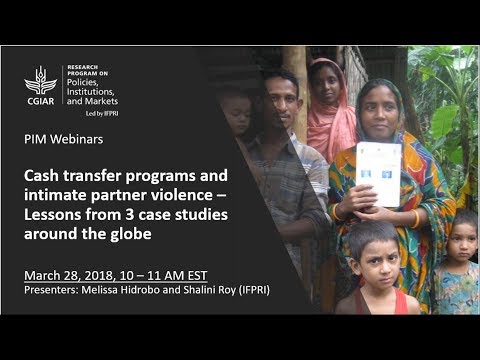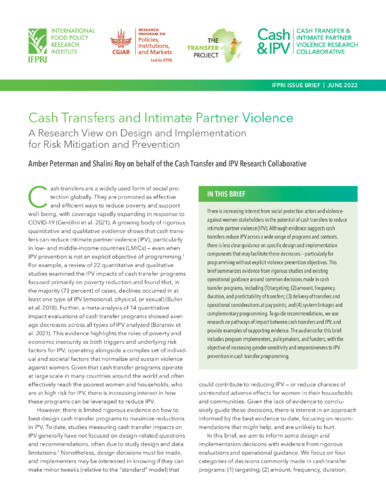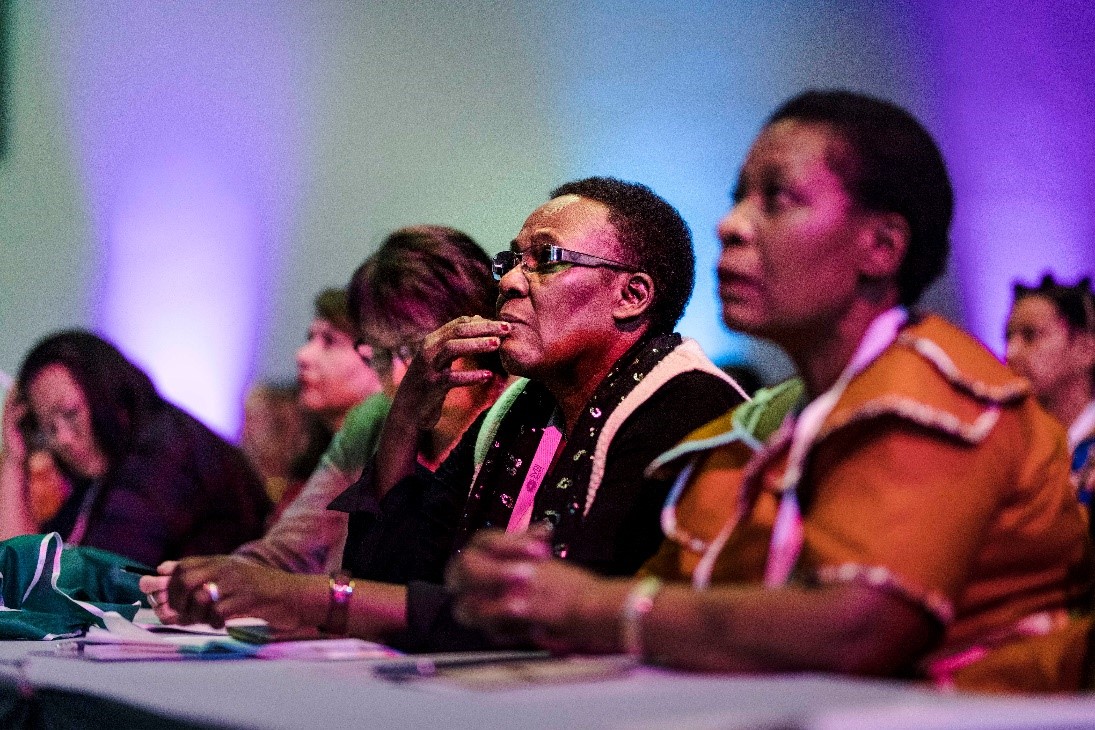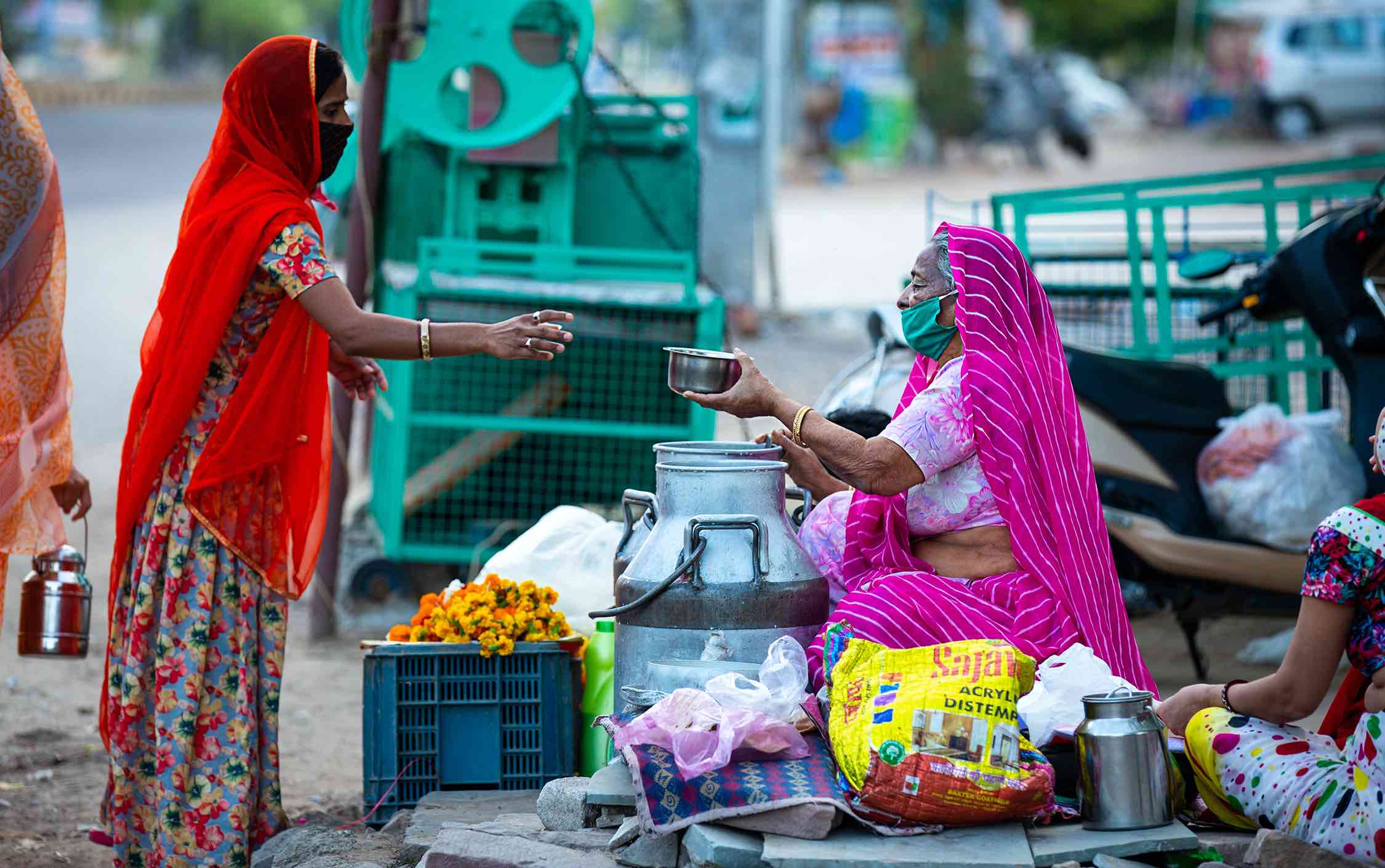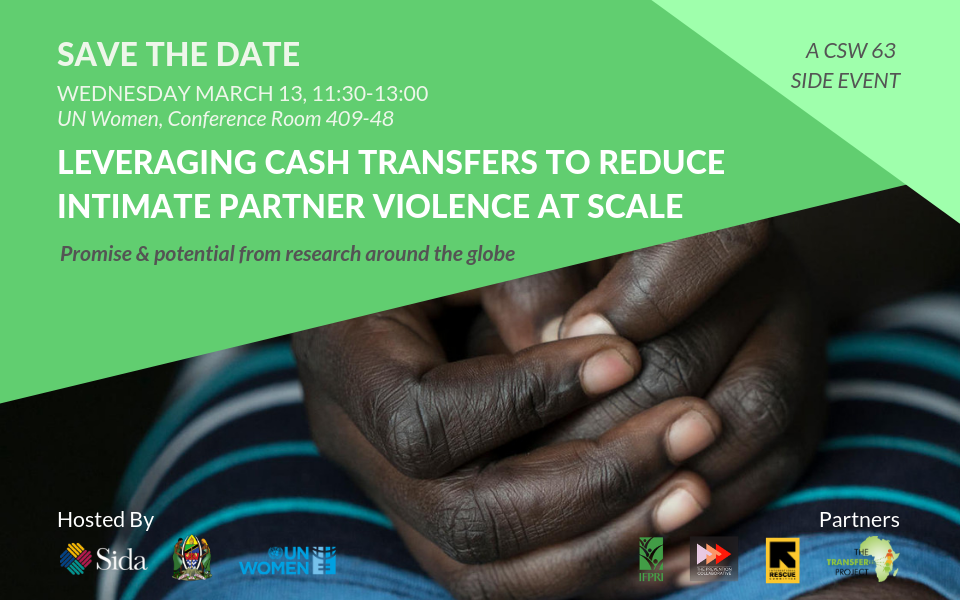The International Food Policy Research Institute (IFPRI), the University of North Carolina (UNC), the London School of Hygiene and Tropical Medicine (LSHTM), University of Buffalo (UB), and the Prevention Collaborative have convened a collaborative research program on cash transfers and intimate partner violence (IPV). The overall long-term goal of the collaborative is to advance the research agenda linking cash transfers and IPV to effectively leverage cash programming for IPV prevention among poor and vulnerable women in low- and middle-income settings.
Motivation for the collaborative’s research
A growing evidence base demonstrates that cash transfers have potential to reduce IPV. In a mixed-method review of rigorous studies from low-and middle-income countries (LMICs), eleven out of fourteen quantitative studies (79%) and five out of eight qualitative studies (63%) demonstrated that cash transfers decrease IPV (Buller et al. 2018). In explaining the impacts, studies generally relied on three hypothesized pathways through which cash could affect IPV: Economic security and emotional wellbeing, intra-household conflict, and women’s empowerment.
Despite the promising conclusions of the review and evidence to date, there are significant gaps in the understanding of linkages between cash transfers and IPV. For example, there are large regional gaps in the evidence—with the majority of quantitative evidence coming from Latin America, but only two empirical studies from Africa and one from South Asia. In addition, mechanisms are poorly understood, with most studies not designed to rigorously test these and few using mixed methods to understand how or why changes occur. Moreover, few studies were designed to test what program design features – such as size, recipient, or duration of transfers—or complementary programming are most promising to leverage impacts of cash on IPV.
Although cash transfers are attractive instruments for addressing IPV from a policy perspective – as they are rapidly expanding in resource-poor settings and often directly reach women and vulnerable households – policymakers focused on social protection often do not have IPV on their agendas, nor are they aware of the potential benefits of cash transfers for IPV prevention. Coordination and communication amongst the larger group of researchers and implementation partners interested in cash transfers and IPV is important for designing a coherent long-term approach to addressing key knowledge gaps.
Objectives of the collaborative
The overall long-term goal of the collaborative is to advance the research agenda linking cash transfers and IPV—defining and contributing evidence to knowledge gaps, aggregating evidence, bringing together researchers and practitioners, and disseminating research findings via channels which maximize evidence uptake for policy—in order to effectively leverage cash programming for IPV prevention. The current phase of the research collaborative’s work (2022 – 2024) has three objectives. The first involves evidence generation via a coordinated small grants fund for eight primary studies advancing evidence on four main research questions. A second component focuses on knowledge mobilization, expanding engagement with a broader stakeholder group, focused on implementing organizations and policymakers, through technical assistance, research translation, dissemination, advocacy. The third component involves advancing the broader research agenda between economic strengthening issues and IPV.




